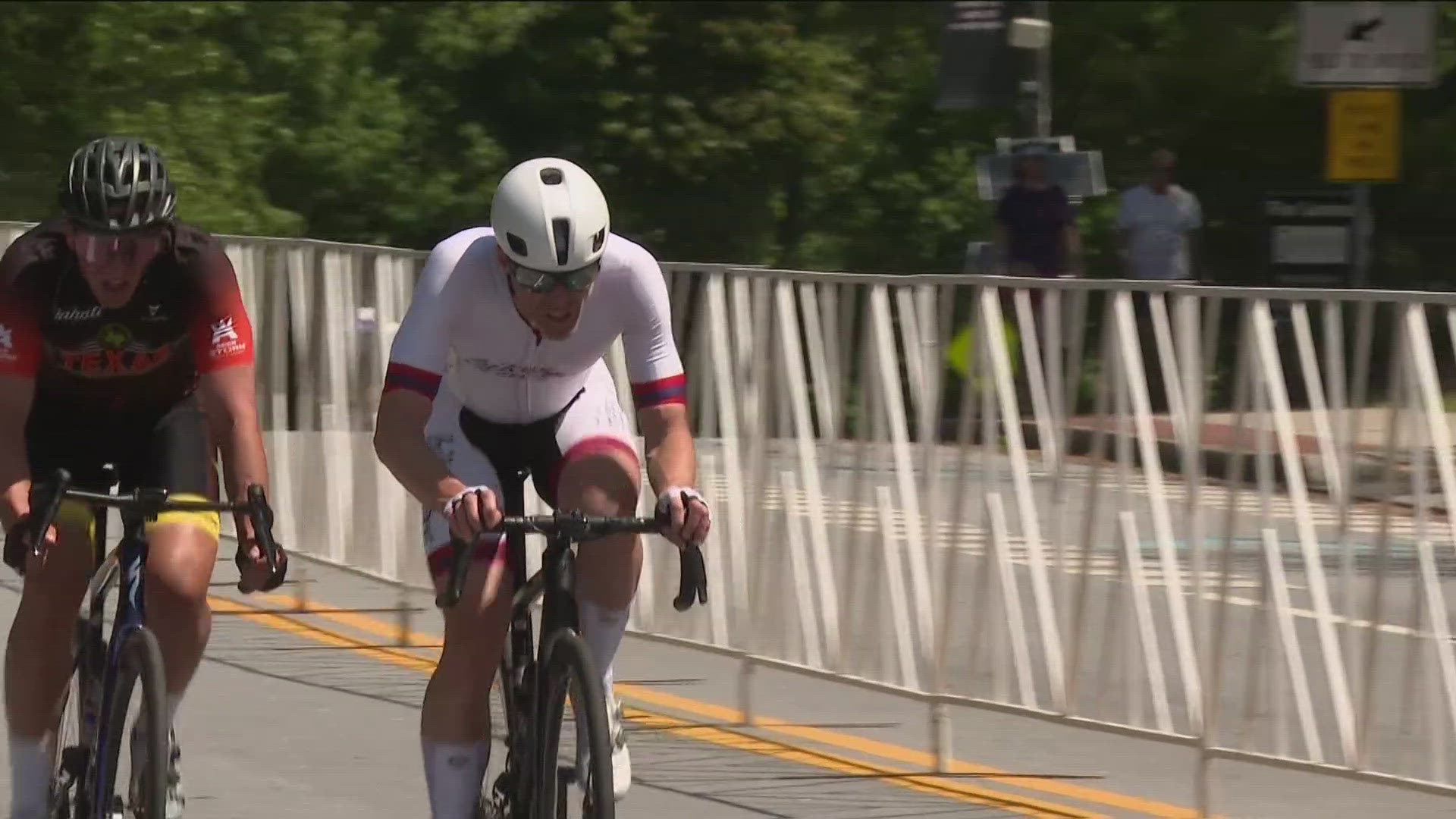PEACHTREE CORNERS, Ga. — Ryan Crabbe found a shady spot on a warm spring day, rooting on his kids in the USA Crit Speed Week race in Peachtree Corners. Like him, Crabbe's kids are all avid cyclists.
"One of the differences from team sports is there are no substitutions, unlimited playing time," Crabbe said "But also it’s a life skill.”
Sometimes, that skill demands that one put their life on the line. Crabbe calls it a personal matter for him. In 2019, he got hit by a car while riding in a bike line.
"Fortunately, my injuries were somewhat superficial," Crabbe said. "I mean, shoulder surgery and a little bit of damage, but I have lost some friends, and it hits very close to home each time you see a story like that.”
Former professional cyclist Frankie Andreu has all the skills in the world. But when it comes to safety, he's at the mercy of others on the road.
“All of our training is on public roads," Andreu said. "It’s out there, so we have to be very vigilant of vehicles that are out there as well. Every cyclist is a husband, a father, a mother, a daughter. They’re family members; they’re not just riders.”
A combination of new technologies is paving the path forward for increased public safety on the road when it comes to drivers, cyclists and pedestrians alike. Jim Stone, a cyclist himself, said 11,000 people per year die on the road in the United States. Stone credits the Curiosity Lab in Peachtree Corners with testing the new technology that can provide details about stoplights, traffic and how close it is to someone on the road.
“I had one of my good friends and a teammate get killed two years ago," Stone said. "The technology being tested and finalized here would have saved her life. Real-time communication between a runner, between a cyclist, between the infrastructure for the city and the vehicle.”
Some automakers could release the tech in vehicles as early as 2025, and some phone apps like Spoke and Travel Safely already use the tech for drivers, pedestrians and cyclists in some cities. Knowing the technology is soon to be more widely available is welcome news for Crabbe, who said everyone plays a part when it comes to public safety on the road.
“Sometimes, it’s just a matter of slowing down for three to five seconds, checking one extra time before you turn left or right out of a side street or driveway," Crabbe said. "We want to try and coexist.”

